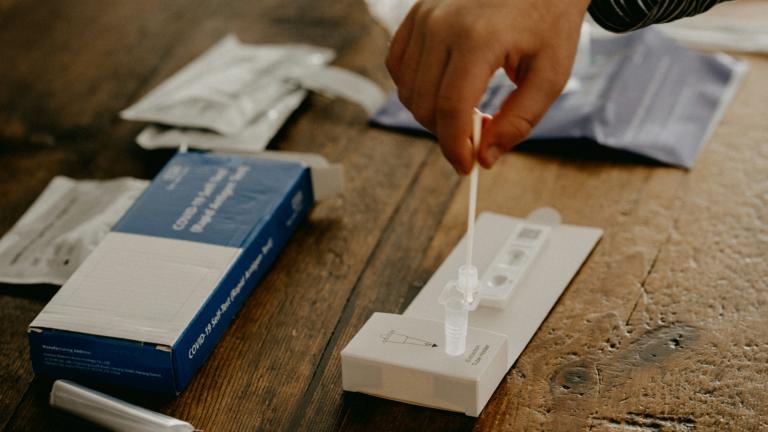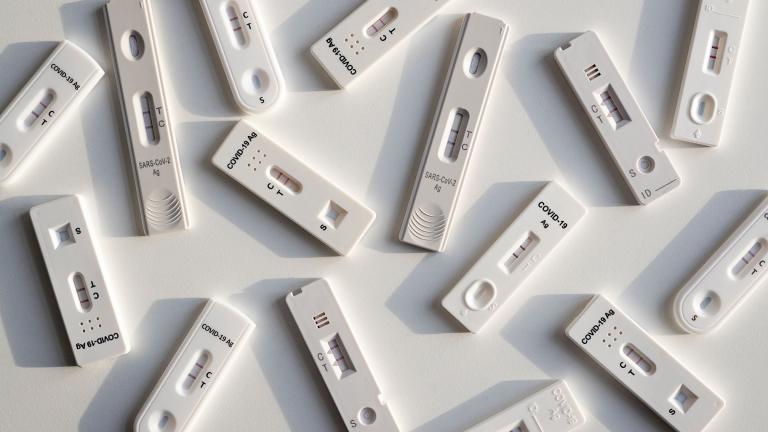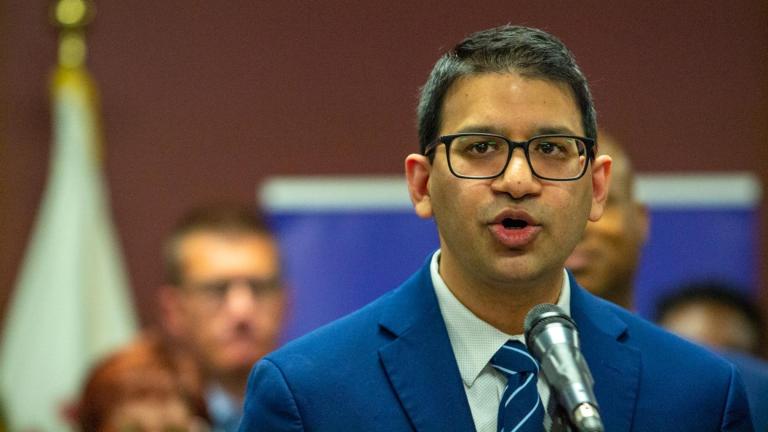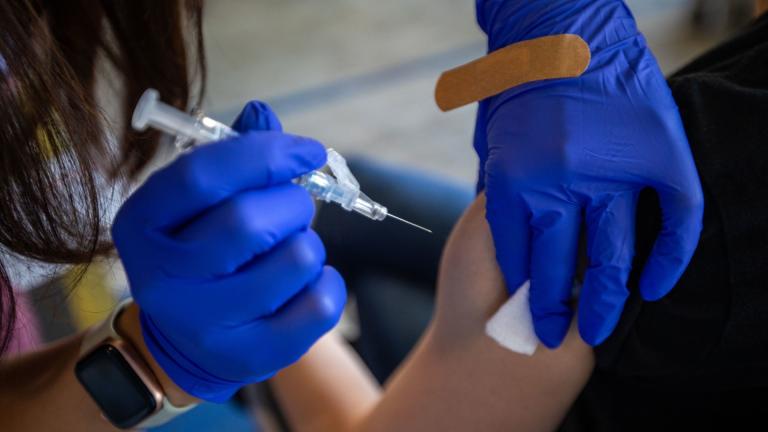They may be on opposite sides of the aisle, but state Sen. Julie Morrison, D-Lake Forest, and Sen. Sue Rezin, R-Morris, receive calls daily from constituents who have the same types of questions and complaints: They want the coronavirus vaccine but can’t figure out how and where to access it.
“We just have a limited number of vaccines right now and the doses are not all there for everyone that wants them,” Morrison said.
Rezin has a hard time justifying some of the rules in place for who’s eligible for the vaccine and who isn’t.
“The governor’s prioritizing prisoners and legislators over the sick and the vulnerable in his altered vaccine distribution plan. We receive phone calls each and every day about elderly with preexisting conditions who cannot get an appointment to get their vaccine. It’s very difficult to explain to them,” she said. “It doesn’t make any sense to inoculate healthy prisoners over people who are most at risk of dying from COVID-19.”
There’s widespread agreement that Illinois got it right in Phase 1A. The first vaccines went to doctors, nurses and other health care workers, patients and residents and employees of long-term care facilities like nursing homes.
Illinois and Chicago are largely following the guidance of the Centers for Disease Control and Prevention, but there is leeway in how states and large cities distribute their allocations of the vaccine.
It’s over who is now eligible, in Phase 1B, that’s causing confusion.
In Illinois, anyone ages 65 or older is eligible, as are certain front-line workers like grocery store clerks and teachers.
But other “essential” workers are not eligible.
Some restaurant servers and bartenders say they should be among those given preference now that Illinois has lifted coronavirus mitigations that banned indoor dining.
The Chicago Teachers Union has been on the verge of striking over Chicago Public Schools’ plan to bring teachers back into classrooms before they’ve gotten vaccinated, but their peers who teach at colleges and universities in the state aren’t eligible in Phase 1B.
University Professionals of Illinois President John Miller said that’s fine for faculty and staff who have the ability to work remotely. But he said professors who teach courses like music and physical therapy can’t hold classes virtually, and so are regularly in close proximity with students.
“This is particularly true of the studios, the labs, a lot of the physical therapy classes. A lot of the hands-on (subjects) that simply cannot be taught in a remote fashion. Additionally, we also represent some building service workers, some food service workers. These are people that are cleaning the dorms, cleaning the classrooms and in some cases even cleaning where the testing is occurring. And they are not eligible for the vaccine,” Miller said. “What we’re very worried about is that they come into contact with a lot of students who we have seen and know are out partying, or are out in social settings of some form or another, and potentially getting in contact with that and then spreading.”
Liz Villarreal is an academic advisor with Proyecto Pa’Lante at Northeastern Illinois University. She said it can feel like higher education is forgotten.
“I don’t want to go back to work and realize that some of those people who I used to talk to are now dead,” she said. “Having access to the vaccine is what we’re talking about. For those that really need it, please include them in that 1B, because they have to go into these buildings. They have to go day to day.”
Chicago librarians who have been working in person at the city’s libraries since the summer also say it’s wrong that they’re not included in Phase 1B, even as other city workers – like those in animal control – are; if they’re not able to get the vaccine, they want to return to working remotely.
Some critics, including several Republican legislators, are upset that prison inmates have access to the vaccine in 1B, given that individuals 64 and younger who have high-risk medical conditions won’t be eligible until the next stage, 1C.
Alan Mills of the Uptown People’s Law Center refutes that critique.
“For prisoners, it’s not a privilege. It is a constitutional right. Unlike everybody else in society, because we take away the ability of prisoners to seek their own medical care, the United States Supreme Court held back in the 1970s that the state has an obligation to provide medical care to prisoners. It’s a constitutional right under the 8th Amendment,” he said. “The moral answer is … people go to prison, they’re still people and they’re gong to come home. So controlling the virus inside prisons is good for all of society. It’s not just good for prisons. But prisons themselves should be treated like everybody else in this regard. They committed a crime but they didn’t lose their humanity.”
Mills said like other congregate settings, COVID-19 is hard to control in prisons and jails. By their design and nature, correctional facilities are places where the virus can rapidly spread.
“Whether you’re talking about getting fed, whether you’re talking about any movement outside of the cell, a guard has to come to you and pat you down, those are very intimate as it were – in a negative sort of way – interactions, and there’s just no way to assure that people maintain 6-foot separation,” Mills said.
And if there’s spread, guards and correctional officers who may get infected could spread it when they’re over their shift and return to their families and communities.
Mills said about 15% of Illinois’ prison population is at least 50 years old, and thousands of inmates would be considered patients of health care facilities or nursing homes were they not in custody. In that regard they’re behind in having access to the shot, he said.
Illinois state legislators were not originally part of the plan for 1B, but Gov. J.B. Pritzker added members of the General Assembly to the eligibility list at the request of lawmakers who said they need the protection if they’re to be expected to perform government functions.
New Illinois House Speaker Emanuel “Chris” Welch commended the decision in a Feb. 3 tweet.
“The issues and challenges facing the General Assembly are enormous, so this is a welcomed step in the interest of government functionality and safety. Whether or not to get a vaccine is a personal choice for every member, but I strongly encourage those who are at-risk or have vulnerable family members to strongly consider it,” Welch wrote.
But Senate Republican Leader Dan McConchie called it “ridiculous” that politicians can get the vaccine, whereas a transplant recipient on immunosuppressant drugs and who therefore is “very vulnerable to COVID-19” cannot if they are under age 65, as “there is no ability for them to be able to get the vaccine even if their doctor says their life depends upon it.”
Pritzker has said he will not get his first shot now but will wait his turn as if he weren’t an elected official as a means of setting an example.
The Illinois Senate is set to hold a hearing Thursday on the vaccine with testimony from Illinois Department of Public Health Director Dr. Ngozi Ezike, pharmacy administrators and heads of local county health departments.
“Illinois in an unprecedented time has begun to try to prioritize its residents. This hearing will allow a lot of questions from the committee,” Morrison said. “Exactly why are some people being categorized as 1B and others are not? And what happens after 1B? 1C? 1D? 2A? I think it’s time to share all this information with the public.”
Follow Amanda Vinicky on Twitter: @AmandaVinicky








